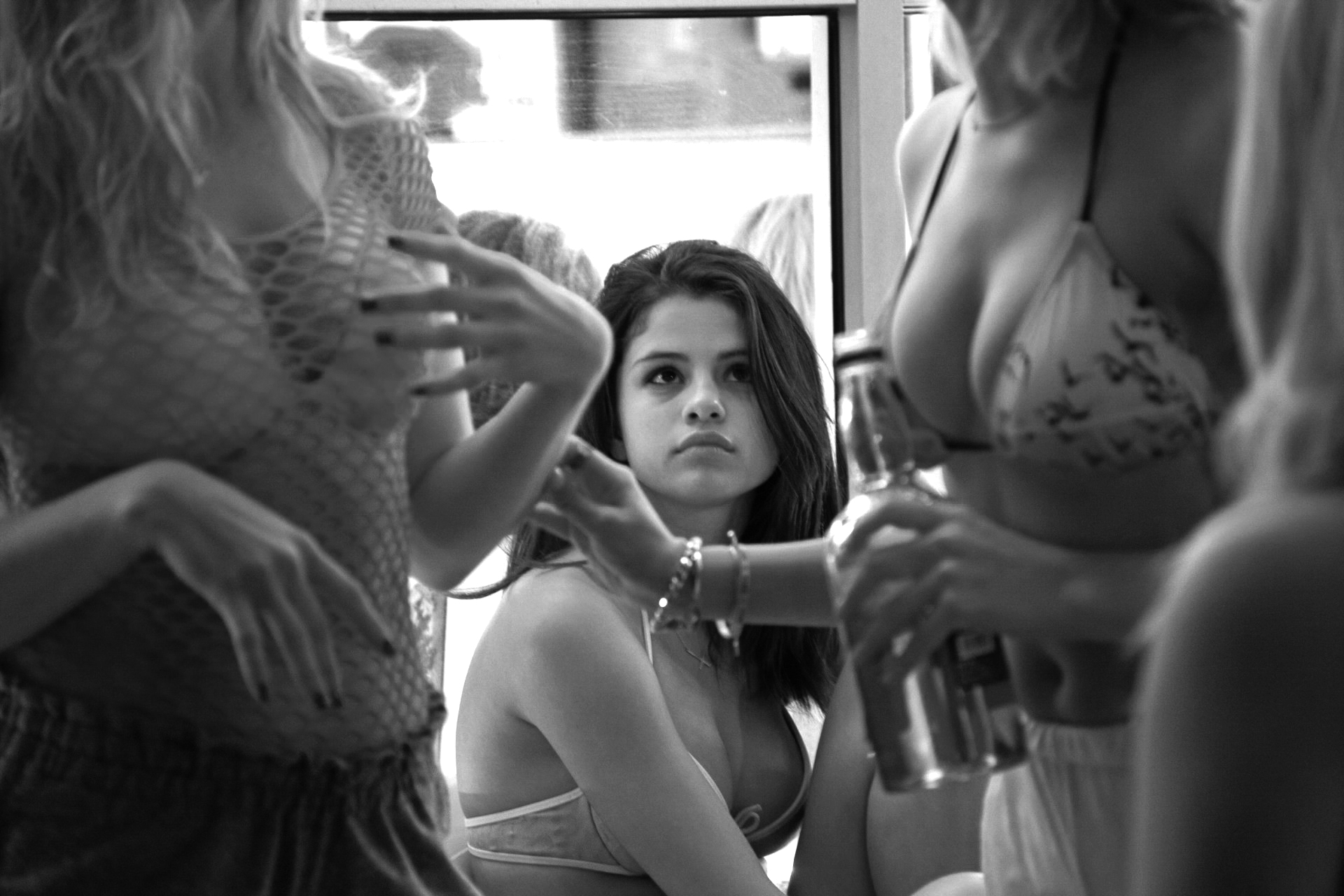For a movie featuring Selena Gomez as a church girl named Faith, and directed by a guy named Harmony, Spring Breakers sure contains a lot of godless chaos.
Writer/director and cinema enfant terrible Harmony Korine returns with another movie about rebellious youth, with characters who seek the same variety of forbidden fun as the stars in Korine’s screenplay of Kids in 1995. Much like how Kids was intended to be a contemporary mirror of teenage society, depicting bored, young New Yorker hedonists during the mid-’90s HIV epidemic, Spring Breakers is set in a modern Florida, and features 2013 Disney pop starlets, Gucci Mane, and a score by mainstream dubstep producer Skrillex. All of these are great commercial selling points for a bubblegum-pop action flick. Korine, however, takes these qualities further, by exploiting Gomez and co-stars Vanessa Hudgens and Ashley Benson’s teen television backgrounds to comment on the culture that idolizes them.
As a concept, Spring Breakers has enormous satirical potential, and the idea of a biting farce lurks beneath the movie’s shiny surface. But the film doesn’t have such a sharp focus. Instead of using the flashy dream-world hyperbole as a lens into something meaningful, Korine hides the lack of substance in his movie behind substances themselves; drugs are depicted on screen with the same degree of abandon as that of the girls who are using them. This is quite convenient for him—instead of making something constructively provocative, he uses the movie’s existential premise as an excuse to not bother. The film is literally missing content, with flashbacks and montages of the same scenes, coupled with voiceovers of the same eerie refrains of “money” and “spring break forever” taking up more screen time than the original sequences where they first appear. The resulting non-sequential, non-sequitur narrative is not artistically surreal, but rather monotonous. If the film was positioned as purely campy, nihilistic pop entertainment, it might have worked, but a film that uses teenage tedium as a catalyst for its narrative—the girls want to visit Florida because they are “tired of seeing the same things every day”—shouldn’t be boring itself.
Two characters have the potential to redeem Spring Breakers from the dead-end sum of its montages of beach bacchanalia and slow motion shootouts. The scene in which Alien, played by James Franco, tries to manipulate Faith into staying in Florida is genuinely disturbing, and one of the film’s best. Unfortunately, Faith, scared to tears, exits the film early, which leaves it without its most developed female character.
That leaves us with Alien and his girls, whom, for the moment, appear human. Franco adopts the role, obviously modeled after Houston rapper Jody Christian (aka RiFF RAFF), extremely well, and Alien’s motives are surprisingly unpredictable—much to Franco’s credit. Alien walks a line between gangster jester—his ridiculous persona a source of comic relief—and idiot savant, whose brassy musings on the life of a hustler are profound in their own way. “People tell me I should change … I’m about stacking change,” he tells the girls. This line almost directly quotes RiFF RAFF himself, and it feels awkward, highlighting that maybe Christian would better suit the role. While Franco, a method actor, apparently stayed in character while on set, Christian is so committed to his eccentric rapper lifestyle that many still speculate as to whether the act is genuine or not—and this undermines the efficacy of his imitator. Acknowledging his influence, RiFF RAFF has even communicated his eagerness to star in a Spring Breakers 2, but including him in this film might give it the kick of absurdity that would push it over the edge.
Spring Breakers is a concept with potential, and a film that could have been more. Korine should either have toned down its style in favour of more substance, or recklessly pushed its explicit content to its nihilist limit, eschewing any hint at message or meaning. But in trying to balance both, Spring Breakers’ ability to provoke is broken.








